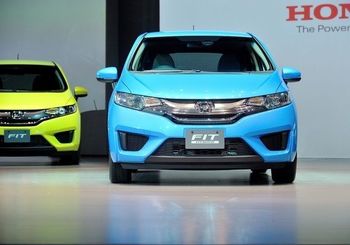
“When you have repeated recalls—as many as four times, you lose the confidence of customers. Were they not able to spend enough time to test properly? Make better cars!” laments the president of Tokyo-area Honda dealerships, in an understandably exasperated tone.
On July 10th, Honda announced a recall (collection and free repairs) for Fit hybrid compact cars and Vezel hybrid compact SUVs due to issue including the occurrence of sudden unintentional starts. Then on the 11th, the automaker also announced a free repair campaign (free repairs not subject to the recall system) due to potential hazards depending on operating conditions involving the automatic parking brake. In both cases, the malfunctions are caused by bugs in the engine control program.
All 175,356 sold thus far are subject to the recall. According to Honda, there have been 11 accidents resulting in property damage due to sudden starts and one accident resulting in injury due to the automatic parking issue.
This is in fact the fourth time that a recall has been announced for the Fit hybrid (twice for the Vezel due to the timing of its release). It was recalled in October and December of last year, and again in February of this year due to sudden starts. The causes for all of these recalls were bugs in the transmission control program, and they also affected all vehicles sold. At the time of the third recall, Honda was forced to take unprecedented measures, halting production and shipping of the vehicles, and cancelling the delivery of dealer stock to customers.
However, despite the three recalls, reports of sudden starts continued unabated. In just the information from users reported to the “Vehicle Malfunction Information Hotline” that have been disclosed by the Ministry of Land, Infrastructure and Transport, there have been over 20 reports of engine and transmission related trouble since the three recalls. While it is not possible to say whether these were all the result of vehicle malfunctions, the number and contents of reports remain largely unchanged since the approximate time of the recall in February, indicating that the trouble had not been eliminated.
Although different programs were the cause—the transmission control program in the previous three and the engine control program in the most recent—the malfunctions that occurred were nearly identical sudden starts. “We believed that we had determined the cause of the problem with the previous recalls, and as a result, we regrettably failed to discover this most recent issue (engine control program) due to insufficient investigation into the cause,” stated the Honda Publicity Department.
In the background of this unprecedented series of recalls are an increase in the complexity of systems such as the hybrid system and a contrasting insufficient allocation of development and quality assurance resources.
The new Fit and Vezel hybrids are equipped with a new hybrid system featuring a mechanism that is completely different from past Honda hybrids. The development had only just started, and not only has the mechanical complexity increased, it has expanded to the point that the transmission, clutch, and engine control program are incomparable to those of older hybrids. The automatic parking system was also first installed in these Fit and Vezel hybrids.
In order to tackle systems of such a degree of difficulty, even Honda devoted a greater amount of staff and time to development in comparison with older models. However, under the banner of “worldwide simultaneous development”—in which Honda would introduce the new Fit, Vezel, and three derivative sedan models worldwide in a short period of time, an even greater load was placed on the already highly-stressed development.
Normally, when introducing models into markets in other countries, development is conducted in sequence over several years based on a model already released in Japan that is modified to meet local specifications. In contrast, under worldwide simultaneous development, vehicles are developed to meet local specifications abroad alongside the Japanese model, and they are released without any gap time lag after the Japanese release. The goal is to move forward with worldwide introduction while the new model retains its “freshness,” and to reduce costs by sharing parts and consolidating procurement volume.
If all models worldwide, including derivative models, are to be developed simultaneously, then it is necessary to pour in all of the development resources that previously would have been spread out over a number of years at once. However, just prior to the release of the Fit hybrid last September, Honda development leaders reflected, “Development resources were substantially reduced compared to before, so it was hard work.” Based on the succession of recalls for the new Japanese model, it seems fair to say that quality assurance was understaffed as a result.
The Fit and Vezel are both mainstays that carry Honda’s domestic sales. Moreover, the hybrid system is a cutting edge system emblematic of Honda’s technical prowess. If problems still persist even with this recall, it may have a major impact on Honda’s domestic sales and brand strength.

